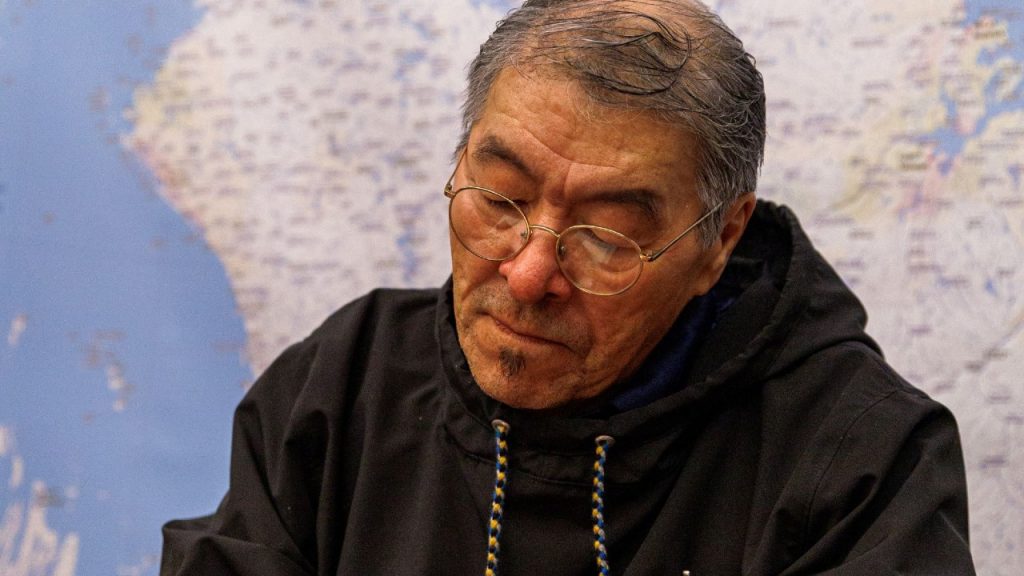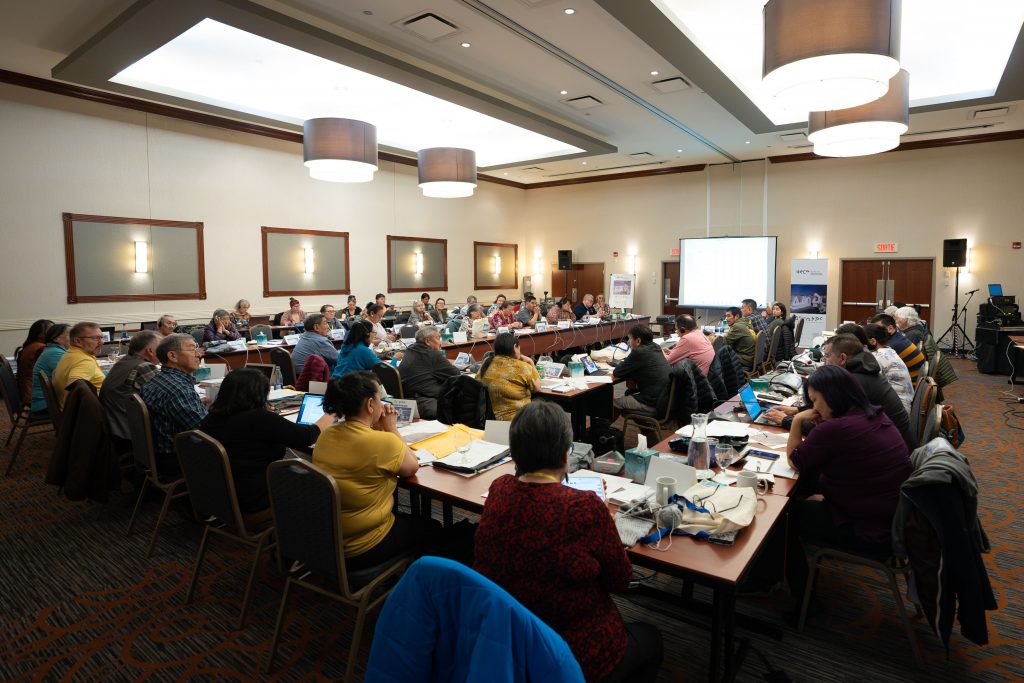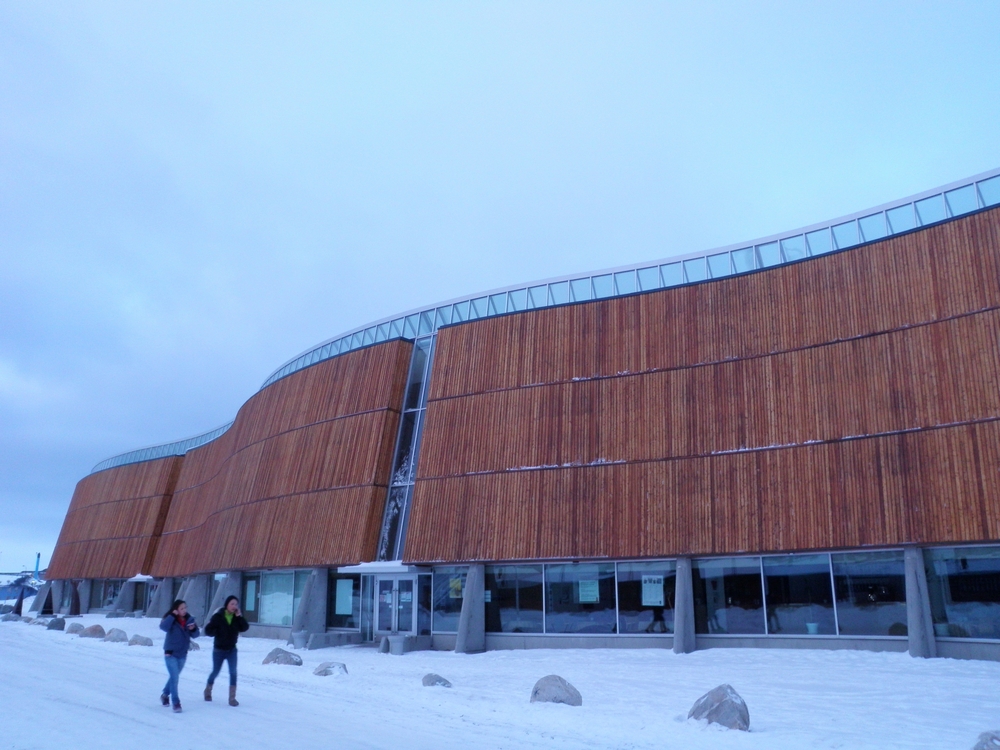Heritage centres, language authority among initiatives to fortify Inuktitut in Nunavik

Inuit Heritage Centres and an Inuktitut Language Authority are among the key initiatives highlighted a recent declaration to strengthen Inuktitut in Nunavik, Avataq language specialist Zebedee Nungak said.
“We live in Quebec where French is supreme, and our language is eroding dramatically,” Nungak told Eye on the Arctic in phone interview.
“Our people have defined the need for a formal institution and heritage centres which will be a safeguard and a protector, a guardian and a guarantor, to make sure our language and culture survives.”
The creation of the centres and authority were first identified in Avataq’s 2012 Illirijavut: That Which We Treasure report on language, a survey that reached out to the population for their thoughts and priorities on strengthening Inuktitut.
In October, Makivvik Corporation, which represents the interests of Inuit in Quebec when dealing with governments, and Avataq, the cultural organization for Inuit in Quebec, signed a Memorandum of Understanding (MOU) to bolster Inuktitut in Nunavik.

The organizations said the MOU would ensure financial resources for the initiation of several long-planned initiatives identified in the 2012 survey, with Avataq able to access to up to $36 million for language projects in Nunavik over the next five years.
The MOU also mandates annual meetings between the two organizations to discuss language priorities for the region, a crucial commitment given the current state of Inuktitut.
- The percentage of the population that could speak the Inuit language in Inuit areas of Canada went down in all regions except Nunavik according to the 2021 census.
- The 2021 census also found that Nunavik had the largest percentage of Inuktitut speakers per population, with 98 per cent of children able to speak the language.
The MOU also mandates annual meetings between the two organizations to discuss language priorities for the region, a crucial commitment given the current state of Inuktitut.
Unique situation in French-speaking province
Nungak said Nunavik is regularly in communication with the three other Inuit regions in Canada on language and culture issues, but that it needs its own language authority to navigate its unique cultural and political situation as the sole Inuit region located in a French-speaking province.
“We are living in a very particular province in a very particular country,” Nungak said. “There’s all sorts of pitfalls, traps and exclusions for the Inuit language, like the fact that they won’t give us official language status, and so the focus of our authority would be strictly on Nunavik.”
Nungak said they are planning a two-year period to work out the authority’s exact structure and mandate.
Inuit Heritage Centres housing archival footage, audio recordings of legends, stories and history, displays of traditional culture, and workshops for making traditional items like kayaks and clothing out of animals skins, was also identified as a priority.
“Right now in our communities, the closest thing to an institutional home for Inuit language, culture and identity is in the schools for children, but we need gathering places for the teaching of Inuit skills and maintaining constant contact with our history, language and culture and ensuring our descendants are exposed to these things.”

“These wouldn’t be hand-me-down shacks. They would be world class modern buildings that are very pleasant places, not just to visit, but to see how Inuit take pride in their identity, language and culture.”
“We are being being carpet-bombed by English and French”
The 2021 census found that Nunavik had the largest percentage of Inuktitut speakers per population, with 98 per cent of children able to speak the language, but Nungak said the number is disceiving.
“The statistic is impressive but the reality is quite dismal, because the Inuktitut we’re speaking now is only about 40% of what our grandparent’s command of the language was,” Nungak said. “We are being being carpet-bombed by English and French through television, radio, computers and video games. Inuktitut is eroding dramatically and we are conducting ourselves in semi-panic mode to try to save it.”
The legacy of government policies, such as Canada’s residential school system which aimed to assimilate Indigenous children into the dominant culture while suppressing their native languages, is something Inuit still need to fight against today, Nungak said.
“The state had taken a lot, and imposed a lot, on the language, culture and identity of Inuit. And in our reports, and in our approaches, we are challenging the state, whether federal or provincial, to provide resources for keeping our language and culture alive.”
Comments, tips or story ideas? Contact Eilís at eilis.quinn(at)cbc.ca
Related stories from around the North:
Canada: Inuttitut language revitalization campaign underway in Labrador Inuit region, Eye on the Arctic
Finland: Everyone encouraged to boost Sami language visibility in Finland, Norway and Sweden this week, Eye on the Arctic
Norway: Indigenous and minority language names for Norway now have official status, The Independent Barents Observer
Russia: German project to house everything published in Siberian and Arctic languages to seek new funding, Eye on the Arctic
Sweden: Can cross-border cooperation help decolonize Sami-language education, Eye on the Arctic
United States: Inuit leaders applaud UN move to designate International Decade of Indigenous Languages, Eye on the Arctic



